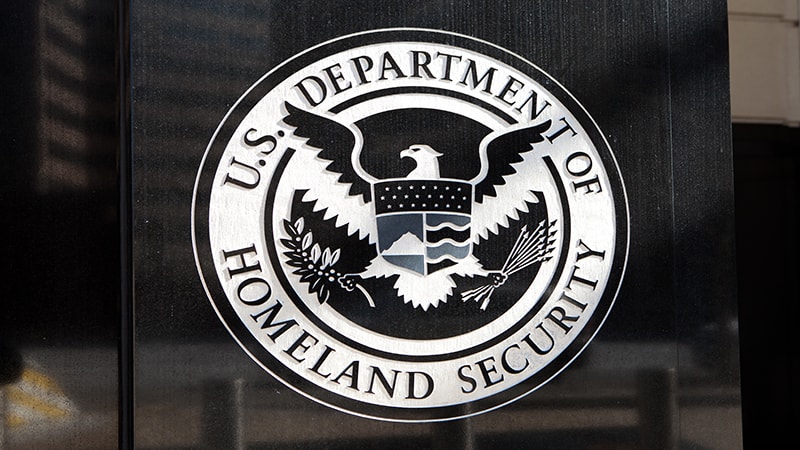
The House Appropriations Committee Homeland Security Subcommittee allocated $63.8 billion in its draft of the FY2020 Department of Homeland Security (DHS) budget, including increased funding to efforts to bolster cybersecurity, election security, and new IT and border security technologies.
The appropriations, which the committee reviewed in a hearing today, represents a $2.2 billion increase above the FY2019 appropriation and marks a $1.9 billion decrease to the Trump administration’s requested budget for the coming fiscal year. In the legislation, $49.7 billion is in budgeting allocations, and $14 billion goes toward a budget cap adjustment for major disaster response and recovery activities.
The subcommittee notably provided increased funding to support DHS’s cybersecurity mission. The bill provides $2 billion for the Cybersecurity Infrastructure Security Agency (CISA), an increase from the $1.6 billion provided both in the FY2019 allocation and the White House budget request.
“This 20 percent funding increase [for CISA] will help the new agency move faster to improve our cyber and infrastructure defense capabilities,” Subcommittee Chairwoman Lucille Roybal-Allard, D-Calif., said.
A subcommittee report on the bill said that the increased funding includes an extra $3 million for increased cybersecurity services for non-election critical infrastructure, $7.9 million to fully fund cybersecurity advisors, an additional $10 million to support CISA Regional Operations, and $26 million to continue expanding a cybersecurity shared services office.
The overall Continuous Diagnostics Mitigation (CDM) program also received $134.9 million more than the White House request, including $60 million to accelerate data protection and dashboard development, $51.8 million to support Federal network infrastructure modernization, $14 million to accelerate CISA’s mobile device protection deployments, and $9.1 million for other CDM enhancements, like dashboard visualization.
The report also emphasized that it wants CISA to accelerate CDM pilot programs.
“The Committee directs CISA to continue pilot programs within CDM that extend incident detection and prevention to federal endpoints. The pilot programs should focus on leveraging emerging technologies like cloud-based endpoint protection platform solutions,” the bill report said.
The subcommittee also allocated $24 million for the Election Infrastructure Security Initiative (EISI) to help CISA help secure state and local election systems for Federal elections ahead of 2020.
The legislation also provides increased funding to Industrial Control Systems (ICS) by $11.4 million to enhance cybersecurity training, malware analysis, safety systems vulnerability analysis, incident response, and assessments of ICS in emerging sectors and subsectors. Furthermore, the subcommittee requested to grant $4.6 million for CISA’s regionalization efforts and $24.1 million for cybersecurity research and development.
The subcommittee also addressed concerns with DHS cybersecurity workforce diversity by tasking the department to develop ways of including minority and underrepresented communities.
“To increase the diversity of the cybersecurity candidate pool, the Committee directs the Department to partner with minority-serving institutions that award degrees in areas such as information technology, computer science, and engineering to increase the number of cybersecurity interns that are prepared to enter the cyber workforce,” the bill report said.
Other allocations in DHS cybersecurity, IT, and modernization in the bill include:
- $223.7 million for phase two construction of a CISA headquarters;
- $116.3 million for financial systems modernization;
- $10.3 million for the Human Resources Information Technology program;
- $3.3 million for the DHS Data Framework;
- $8.25 million for DHS One Net;
- $15 million for the Homeland Advanced Recognition Technology program;
- $2.5 million to modernize Immigrations and Customs Enforcement IT systems and data platforms;
- $665.7 million for DHS Science and Technology Directorate; and
- $16.1 million to invest in cybersecurity and IT infrastructure security.
Border security issues dominated the committee hearing for the draft bill markup today, particularly concerning disagreements with the majority and minority about border barrier funding, as the majority did not include allocations to construct a southern border wall.
However, the draft bill does provide $55 million to U.S. Customs and Border Protection (CBP) for border security technologies, to include $20 million for operations and support and $35 million for procurement, construction, and improvements.
“CBP is encouraged to review such technologies as countermeasures for unmanned aerial vehicles, remote sensing technology, high altitude persistence drones, and innovative tower technologies,” the bill report said.
The report added that DHS should work with the Defense Department and industry partners to accelerate the border technology acquisition process.
